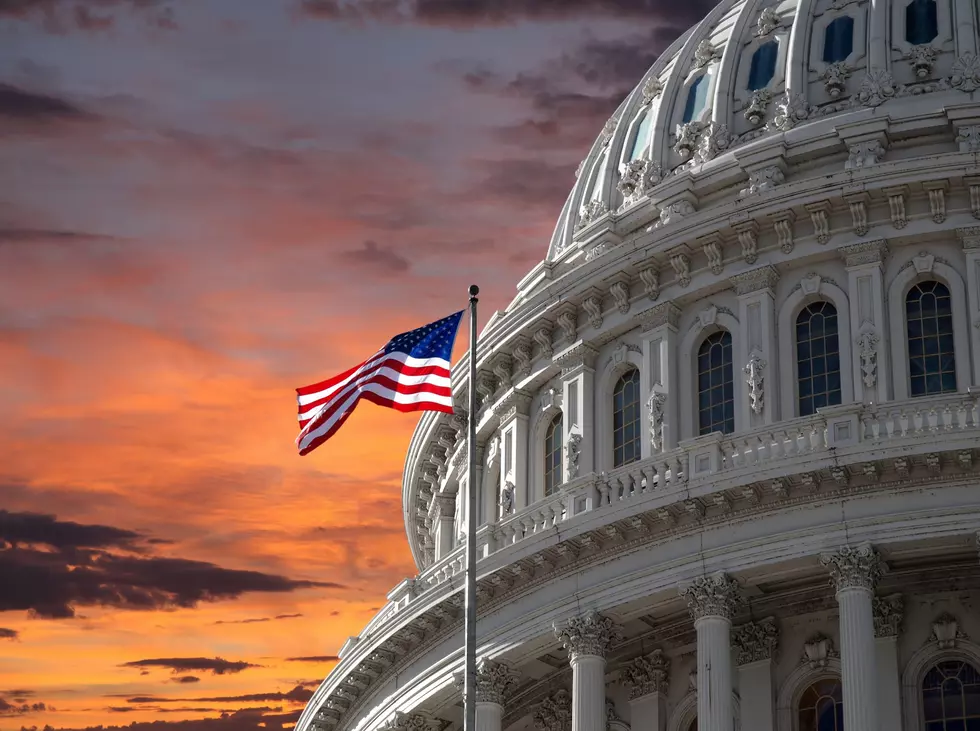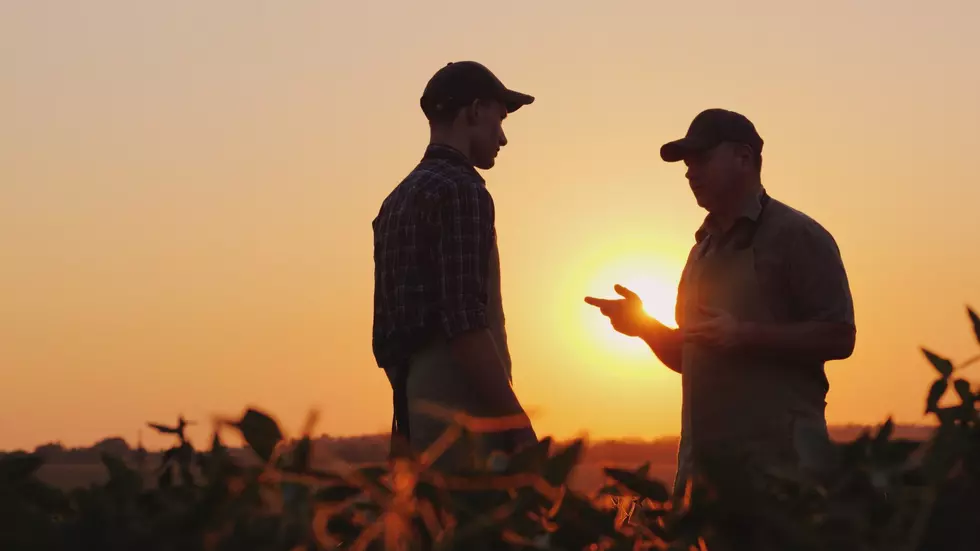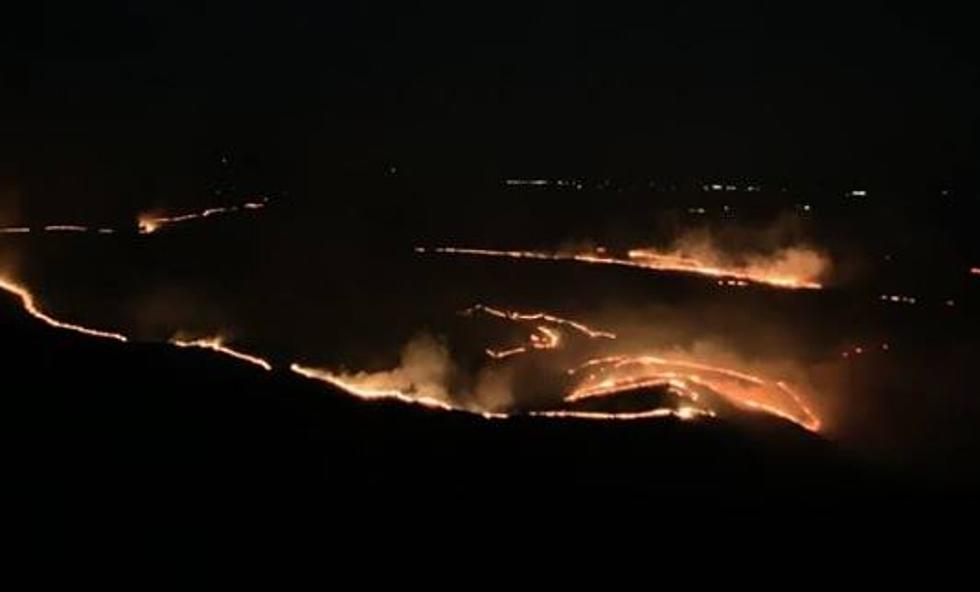
Merkley Announces Funding For Rural Oregon
Oregon senator Jeff Merkley says he has secured much needed funding to help rural communities across the state, make forests more resilient and protect public lands. The bill is the basis for negotiations with the House, as Congress works to fund the government for fiscal year 2022.
“For too long, programs protecting public lands, public health, and the environment and supporting tribal communities have been operating on fumes—as Oregonians know that all too well,” Senator Merkley noted. “I took the role of Chair on this subcommittee to make sure communities here in Oregon had the resources they need for the priorities most important to folks across the state, and this bill does just that. It makes unprecedented investments to address climate chaos, respond to and prevent climate-driven wildfires, protect natural places and wildlife, restore the rightful place of science, and rebuild capacity at federal agencies. The bill also makes transformative change in Indian Country by boosting funding for tribal health care by a full 25 percent, and providing budgetary certainty—for the first time ever—for the Indian Health Service. This bill delivers in a big way for Oregon and the nation, and it’s critical that the Appropriations process move ahead without delay to make sure these long-overdue investments become reality.”
The Interior, Environment and Related Agencies Appropriations bill includes funding to support wildfire management, following another year of unprecedented blazes, as well as providing funding to support efforts to address the water crisis in the Klamath Basin:
· Forest Health Restoration and Collaboration: The bill provides $80 million for the Collaborative Forest Landscape Restoration Program (CFLRP). Oregon has four active CFLR projects: Northern Blues Collaborative Forest Landscape Restoration Program, Southern Blues Restoration Coalition Collaborative Landscape Restoration Project, Deschutes Collaborative Forest Project, and Lakeview Collaborative Landscape Restoration Project. This is the authorized maximum for the program that Merkley championed in the last Farm Bill.
· Wildfire Management: In anticipation of the next fire season, the bill provides $3.8 billion in funding for wildfire suppression accounts at land management agencies. To reduce wildfire risk, the bill provides $664 million for hazardous fuels reduction projects.
· Klamath Basin Water and Wildlife Conservation: In continued efforts toward a long-term solution in the Klamath Basin, Merkley provided almost $30 million for habitat restoration and monitoring efforts in the Klamath Basin, an $18 million increase compared to last year.
· Payment in Lieu of Taxes (PILT): The bill includes $515 million for the PILT program to fund vital services for rural communities, including public safety, social services, transportation and housing. This funding goes to Oregon counties that have large tracts of federal land, which doesn’t pay property taxes. The investment approved by Congress is $73 million over the president’s request.
· Wildfire Smoke Mitigation: The bill provides $10 million to establish a new grant program at EPA to support local efforts to prepare for and protect against wildfire smoke hazards, for example by developing smoke mitigation and filtration plans for schools and community buildings.
· Water Infrastructure: Critical water infrastructure loan programs under the Water Infrastructure Financing Innovation Authority (WIFIA) Act received $80 million to leverage billions of dollars in investments, such as those underway in Hillsboro, Portland and Gresham. Merkley authored the WIFIA program in 2012, working to ensure public drinking water and wastewater infrastructure are well-maintained to support public health and safety, strong local businesses, population growth, and clean rivers and aquifers. WIFIA was passed into law as part of the 2014 Water Resources Development Act. In total, the bill includes well over $3 billion in loans and grants to support water infrastructure projects.
· Wood Innovation Grants (WIG): The bill provides $20 million, a historic funding level, for the WIG program to help encourage the growth of the mass timber economy in Oregon and to find markets to encourage the removal of hazardous fuels from our forests.
· Tribal Programs: In a historic first, the bill includes advanced appropriations for the Indian Health Service (IHS) next fiscal year, in 2023. Advanced appropriations is a top priority for Indian Country and would protect IHS health care services for over 2.2 million Native Americans from future lapses in appropriations due to government shutdowns, and would provide some budget certainty for the continuity of care during unpredictable budget years. Additionally, the bill provides $18.1 billion for Tribal programs—a significant increase from last fiscal year. The funding includes $7.6 billion for IHS, an increase of $1.38 billion; and $3.9 billion for Bureau of Indian Affairs and Bureau of Indian Education programs, an increase of $433 million.
· Land and Water Conservation Fund (LWCF): The bill provides $900 million, as required by the Great American Outdoors Act. For over 50 years the program has been the main source of funding for federal land and water acquisitions. Acquiring and protecting public lands not only provides environmental and recreational benefits, but also creates jobs in the tourism, recreation, timber, fishing, and other natural resource sectors.
· Earthquake Preparedness: The bill includes $93 million for the U.S. Geological Survey (USGS) to support regional earthquake initiatives, including $28.6 million for the West Coast ShakeAlert early warning project. The bill also encourages the USGS to continue the development of a system for Cascadia that will help prepare for and mitigate the negative human and economic impacts of a major seismic event.
In addition to the funding allotments above, Merkley wrote into the bill federal funding for specific conservation, water infrastructure, and other projects throughout Oregon. Those funds and projects, which were also advocated for by Senator Ron Wyden, include:
· $200,000 for the Fish and Wildlife Service for the project Upper Wallowa River Restoration, Partnership with Wallowa Resources
· $500,000 for the Confederated Tribes of Siletz Indians for the project Ghii Dee-Ne Dvn Cultural Center, Collections and Cultural Preservation, Historic Preservation Fund
· $336,000 for the Confederated Tribes of Warm Springs for the project Museum at Warm Springs, Collections and Cultural Preservation, Historic Preservation Fund
· $800,000 for University of Oregon for a project at the Center for Wildfire Smoke Research and Practice
· $1 million for the City of Dufur for its Wastewater Treatment Expansion Project
· $450,000 for the City of Echo for its project on Potable Water System Service Replacement
· $1.015 million for the City of Haines for its Supply and Distribution Project
· $575,000 for the City of Hood River for its Phase IV Waterfront Stormwater Line Relocation
· $500,000 for the City of Newberg for a project on the Emergency Wastewater Treatment Plant
· $1.5 million for the City of Prineville for its Water and Wastewater Services Extension
· $1 million for the City of Sandy for its Sewer Pipe Improvements
· $1 million for the City of Warrenton for its Hammond Waterline Project
· $2 million for the City of Willamina for its project on Water Intake Repair
· $192,000 for the City of Yamhill for its Treatment Plant Project
· $1.5 million for the City of Albany for its project on Composting System Expansion at the Albany-Millsburg Water Reclamation
· $555,000 for North Unit Irrigation District for its project on Jefferson County Main Canal Lining Project
· $5 million for Rogue River Valley and Medford Irrigation District for its project on Joint System Piping, Phase 1
· $800,000 for Mapleton Water District for its Distribution and Meter Project
· $1.340 million for City of North Bend for its project on Storm and Sanitary Infrastructure Replacement and Upgrades
· $1.958 million for Port of Toledo for its Sewer Connection Expansion Project
· $2 million for Klamath County for its project on Upper Klamath Lake Water Reuse Equipment
· $864,000 for Sustainable Northwest for its project on building Nursery and Recovery Infrastructure for Climate and Fire Resilient Oregon Forests
· $500,000 for The Nature Conservancy for its Equitable and Just Canopy Cover Greater Portland Area Project
· $500,000 for Lomakatsi Restoration Project for its Jacksonville Community Wildfire Protection Project
· $2 million for the State of Oregon for its Opal Creek Wilderness Economic Development Project
· $500,000 for the Oregon Department of Forestry for its project on Oregon Statewide Fire Detection Cameras
· $500,000 for the Long Tom Watershed Council for its project on Willamette Valley Prescribed Fire Capacity
· $915,000 for the Confederated Tribes of Warm Springs for its project on Dry Creek Landfill Compliance Improvements
“We appreciate Senator Merkley’s critical support,” said Klamath County Commissioner Kelley Minty-Morris. “Ten to 12 percent of Klamath County’s GDP and an estimated $300 million in annual sales are generated by our farmers and ranchers. After a drought year like this one, we all have to work together to do absolutely everything we can to increase the resilience of our region’s water supply. With this investment, we can have a serious and beneficial impact on our community’s way of life.”
“We are very encouraged that the recently released Senate Interior Appropriations Bill contains significant funding for the Klamath Basin that will be directed toward addressing fisheries and aquatic resource needs,” said Donald C. Gentry, Chairman of the Klamath Tribes. “We greatly appreciate Senator Merkley and his staff for their work to secure funding needed to address resource problems affecting the Klamath Tribes Treaty resources and Klamath Basin communities.”
“We appreciate Senator Merkley’s advocacy for the Upper Wallowa River Restoration Project. This project will generate significant, long-term benefits to native fish, including bull trout and kokanee, and address long-standing flood risks to the Wallowa Lake State Park,” said Nils D. Christoffersen, Executive Director of Wallowa Resources. “Given the popularity of this State Park, this river restoration presents rich educational opportunities both for the local community and visitors to the area. We’re excited to see the value of this project recognized and supported.”
“Sustainable Northwest expresses our profound appreciation to Senator Merkley for his leadership in supporting wildfire recovery,” said Jenna Knobloch, Sustainable Northwest Wildfire Program Manager. “This critical investment will help small family forest owners who are struggling to recover from the destructive Labor Day fires of 2020. By replanting diverse and climate-resilient species, we will grow sustainably-managed forests that support communities, economies, and the ecosystems we depend on.”
“The Klamath River Basin is one of the most important watersheds in the West, for native fishes, for agriculture, and for indigenous peoples,” said Chrysten Rivard, Oregon Director for Trout Unlimited. “But in recent years these communities have been hard hit by drought and other impacts of the warming climate. We know what can and must be done to sustain the economy as well as the rich natural and cultural heritage of this unique basin—we just need to do more of it, faster. Senator Merkley’s leadership to secure this new funding is a clear demonstration of his longstanding commitment to address the critical needs for the Klamath Basin’s fish and people. These investments are vital to scaling up our watershed restoration efforts, which will improve landscape resilience to climate change, support local economies, and help realize a brighter future for all of the Klamath’s communities and wildlife.”
“On behalf of the Rogue River Valley and Medford Irrigation Districts, I want to give my profound thanks to Senator Merkley and his staff,” said Brian Hampson, Manager of the Rogue River Valley Irrigation District. “Piping the Joint System Canal will help extend the irrigation season for our farmers while putting water back in Little Butte Creek to support endangered coho salmon and other fish. With this funding, and through our work with stakeholders like the Jackson Soil and Water Conservation District, Rogue River Watershed Council, and Trout Unlimited, we will be able to get started on piping and integrate on-farm work that can provide additional water quality benefits in the creek.”
If you have a story idea for the PNW Ag Network, call (509) 547-1618, or e-mail gvaagen@cherrycreekmedia.com
More From PNW Ag Network









